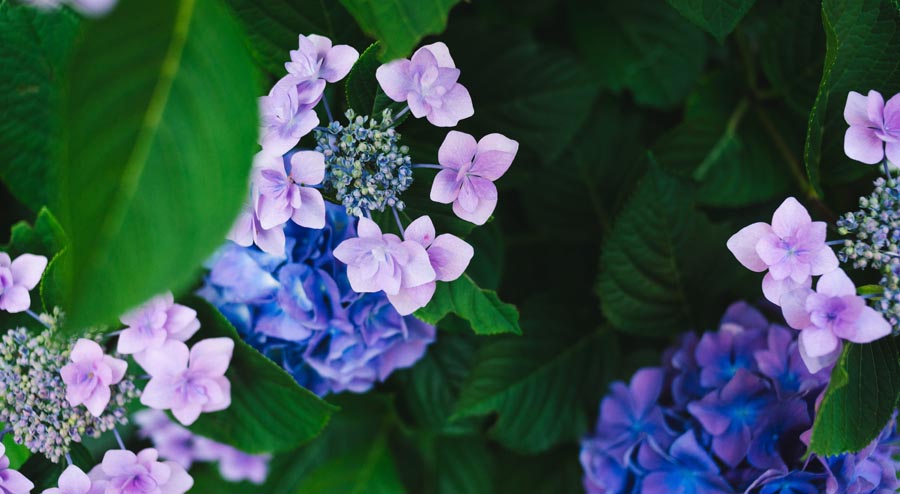
There are quite a few seemingly random things that are associated with being of benefit to hydrangeas.
Pennies, baking soda and Epsom salt are all on the list.
But are rusty nails good for hydrangeas?
That is what we are here to find out.
So without further ado, let’s get started.
Are Rusty Nails Good For Hydrangeas?
Planting rusty nails around your hydrangea will be of minimal benefit to them, aside from possibly providing them with a small amount of iron and even that is debatable. Many of the suggested benefits rusty nails provide are fallacies. If you think they will turn your hydrangea blue, that is also not true and you are much better off using a proven method such as adding aluminum sulfate.
They May Have Slight Benefits If Your Hydrangeas Need Iron
Rusty nails contain a compound called iron oxide, also known as ferric oxide.
Plants need small amounts of iron to stay healthy. If your soil is alkaline or has too much lime, it can cause iron deficiency in your hydrangeas.
Signs of this are their leaves yellowing and falling and stunted growth.
Therefore planting nails around the base of your hydrangea can, in theory, provide them with the iron they need to rectify any such deficiency.
But there is a problem.
The iron oxide in rusty nails is pretty much insoluble.
Therefore very little of it will be released and even less of it will be absorbed by plants.
You would literally have to fill the ground around your hydrangea with hundreds of nails.
And iron is usually quite abundant in garden soil anyway, unless the soil is very alkaline.
RELATED ===> Why Do Hydrangea Flowers Change Color According To Soil Ph?
But in All Reality, Rusty Nails Are of No Real Benefit to Hydrangeas
But the truth is, all of those theories floating around out there about how rusty nails can benefit not just hydrangeas, but all kinds of plants, aren’t true.
So will they:
- Make blue spruces bluer?
- Increase the yield of fruit trees?
- Make alkaline soil acid?
- Help hydrangeas bloom better?
- Many, many more things?
No they won’t.
You are probably more at risk of getting an infection from a rusty nail when attempting to bury in a garden than anything else.
RELATED ===> How Often To Water Hydrangeas With White Vinegar?
Will Rusty Nails Turn Hydrangeas Blue?
If you have read what I have written above then you can probably guess the answer to this question…
No, they won’t!
The theory is quite easy to understand.
Hydrangeas sport blue flowers when they grow in acidic soil.
The iron from the rusty nails will raise the soil acidity and ensure blue flowers for your hydrangea.
But as mentioned above the iron produced by rusty nails is iron oxide. It is largely insoluble and very little of it will be released into the soil.
Even if you fill your soil with rusty nails, at best it will only make the soil very slightly more acidic.
Certainly, the difference won’t be sufficient to turn your pink hydrangeas blue.
On top of that, the pH level of soil is only one contributor to turning pink hydrangeas blue.
The other essential item is aluminum. It is actually the aluminum in the soil that hydrangeas absorb to change the color of their blooms.
Without sufficient aluminum, not iron, in the soil they will stay pink.

RELATED ===> Are Banana Peels Good For Hydrangeas?
Both the Lower Saxony Chamber of Agriculture and renowned British TV gardener Christine Walkden have also confirmed that it is a myth that rusty nails turn hydrangeas blue.
If you want to raise the acidity of your soil, there are much better ways to do it than by planting rusty nails in the soil.
One of the most popular ways is using aluminum sulfate which is available at most garden stores.
The sulfate helps lower the pH level of the soil and the aluminum is then available for the hydrangeas to absorb to turn them blue.
There are absolutely no sharp or dangerous pieces of metal to deal with, and it is much easier and certainly much more effective!
Final Thoughts
Are rusty nails good for hydrangeas? Will rusty nails turn hydrangeas blue?
The answer on both accounts is no.
In all honesty, rusty nails aren’t exactly bad for hydrangeas, there are just a lot of myths around their benefits.
Aside from possibly making slightly more iron available to plants, they really won’t do too much.
If you want blue hydrangeas you are much better off using a proven method such as adding aluminum sulfate to your soil
Good luck!
